| Organe de presse | ||||
| HOME | ||||
| Change
language |
|
|||||||||
| Droit Fondamental | |||||||||
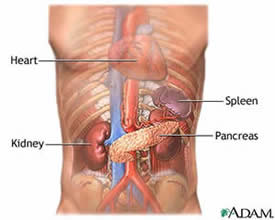 |
| Marcel Vervloesem was condemned to four years of prison "taking into account his state of health", highlighted by multiple operations to the heart, kidneys, pancreas, three metastases and eleven reanimations from diabetics comas. He refused to runaway, although it was offered to him free of charge. He decided to die for what he has lived, but as fast as possible. He had chosen for that, a hunger and thirst strike with a request for the application of the constitutional laws to the victims and witnesses of the networks, but there again, nothing worked as expected. But the survival of Marcel puts in danger the "extinction of the Zandvoort procedures", a dossier exposing organized paedocriminality in Europe, covered-up by corruption. The Ministries of justice and home affairs fed a defamatory populist campaign against Marcel for twenty years, first to throw discredit over the discoveries of his NGO. Then as failing to reach that point, to cover his assassination, but nothing works as expected. Marcel was transferred in an ambulance at the prison of Turnhout to grant him "more humane detention conditions". The head doctor of the Bruges prison has agreed with the head doctor of all the Belgian prisons that he will remain imprisoned in Turnhout, but he will be brought back to the hell of the Bruges, for short periods only. Yet, the two hospitals of Turnhout are perfectly equipped to treat him. Would the Minister of Justice fear that the doctors of Turnhout refuse to send him back to prison as long as his life is in danger? |
Autopsy of an assassination attempt
Jacqueline de Croÿ - 5 juillet
2009
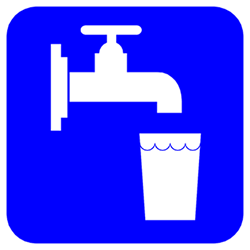 A
person cannot normally survive more than three days without contribution
of liquids, of which half are ensured by drinks, and the other
half by food. A sedentary adult eliminates 2,5 litres of water
per day (up to 1 litre in perspiration), that the body, composed
of 60% water, claims to have back, by hunger and thirst. Dehydration
involves the fall of the cardiac flow and the blood-pressure,
the acceleration of the pulse, the reduction of the volume of
blood and the increase of the glycaemia. Dehydration can be deadly
as from a loss of 10% of the weight, and requires urgent treatment
as from a loss between 6 and 9% of the weight. The minister can
thus precisely calculate, by the weight and size of the prisoner,
the numbers of days he may survive, knowing muscles is made of
75% water and fat of 14% water.
A
person cannot normally survive more than three days without contribution
of liquids, of which half are ensured by drinks, and the other
half by food. A sedentary adult eliminates 2,5 litres of water
per day (up to 1 litre in perspiration), that the body, composed
of 60% water, claims to have back, by hunger and thirst. Dehydration
involves the fall of the cardiac flow and the blood-pressure,
the acceleration of the pulse, the reduction of the volume of
blood and the increase of the glycaemia. Dehydration can be deadly
as from a loss of 10% of the weight, and requires urgent treatment
as from a loss between 6 and 9% of the weight. The minister can
thus precisely calculate, by the weight and size of the prisoner,
the numbers of days he may survive, knowing muscles is made of
75% water and fat of 14% water.
Neither very tall, nor very fat, Marcel had lost 17.6 lbs on the third day of his imprisonment. He was thus in a critical condition, which gave him only a few hours to live. The doctor of the prison of Turnhout called an ambulance the following day at midday, but the ministry sent it back empty. The long populist campaign was provided for the people to applaud the death of a "paedophile" in prison, which obviously had not suited the doctor. A second ambulance came at the end of the day, to drive Marcel at the medical block 61 of the Bruges prison, in an isolation cell, maybe to make sure he did not "cheat". He survived without explanation and decided to start again to drink water at the sixth day, but not to eat.
 Fasting
requests to drink 2.5 litres of fresh water per day to compensate
for the liquids contained in food. Marcel was then only allowed
boiling water, which contrary to fresh water, acts on an empty
stomach as a powerful intestinal pipe cleaner, which causes acute
pains and increases perspiration, therefore dehydration. Pain
prevented him to drink more than four cups, then two cups per
day, because this water was not left at his disposal long enough
to cool down. The direction of the prison has opposed that his
guests brought him fresh water, although available in a drink
distributor of the prison of Bruges, on the way of block 61.
Fasting
requests to drink 2.5 litres of fresh water per day to compensate
for the liquids contained in food. Marcel was then only allowed
boiling water, which contrary to fresh water, acts on an empty
stomach as a powerful intestinal pipe cleaner, which causes acute
pains and increases perspiration, therefore dehydration. Pain
prevented him to drink more than four cups, then two cups per
day, because this water was not left at his disposal long enough
to cool down. The direction of the prison has opposed that his
guests brought him fresh water, although available in a drink
distributor of the prison of Bruges, on the way of block 61.
The laws of physiology indicated on September 30, 2008, that Marcel should have reduce him into a state of dust, when he decided to start eating again. His dehydration was maintained under control, by his maintenance in the isolationcell. It was voluntary, in knowelegde of the top the hierarchy of the prison: one of the directors has answered in writing on October 1, 2008, at the request of authorization to bring him fresh water, to ask the other directors. It thus technically, medically and judicially acts of an attempt at assassination, this is to say when a human being voluntarily tries to kill another, which was repeated.
Marcel then was indeed object of 8 day delaying tactics to defer his hydration, until he fell into a diabetic coma, then of 50 days delaying tactics to treat his kidneys, then 112 days of delaying tactics for an open-heart surgery. The worst of his Calvary, he says, were 8 days at the hospital St John of Bruges, wounded by shackles in intensive care and prevented from sleeping by a constant electric light. The second worst where the 3 months in the medical block 61, without right to fresh air. The third worse was 7 months the disciplinary block 35, one of hardest of Belgium, where he was transferred, officially for "medical reason" only.
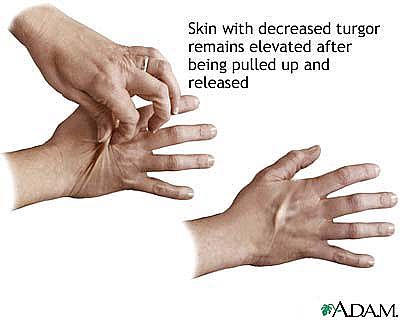 The
penitentiary authorities, under the supervision of the ministry
for justice, then arranged the visit of two doctors who pushed
him to commit suicide. The first revealed him he could die in
ten days without the sufferings of hunger and thirst, simply by
abstaining to take his medications. The second one has encouraged
him by saying that the State would have to release him, in its
duty to avoid suicides in prison. Marcel yielded when he was advised
that he would be maintained nine extra months in the disciplinary
block 35, without penitentiary leave, to weigh even more on his
detention conditions. But he again defied all the laws of physiology,
by surviving 44 days without insulin, vomiting every two hours
and with fevers, the most common factors of dehydration. At the
time of this last attempt to "extinguish the Zandvoort procedures",
a doctor made Marcel a test, which happens to indicate severe
hydrous loss, when the skin lost its elasticity and a pinch forms
folds which maintains a time well above standard. This doctor
did not tell him that it was a clinical sign indicating the necessity
of urgent treatment, or at the very least, of drinking a lot of
water by small sips to limit the vomiting.
The
penitentiary authorities, under the supervision of the ministry
for justice, then arranged the visit of two doctors who pushed
him to commit suicide. The first revealed him he could die in
ten days without the sufferings of hunger and thirst, simply by
abstaining to take his medications. The second one has encouraged
him by saying that the State would have to release him, in its
duty to avoid suicides in prison. Marcel yielded when he was advised
that he would be maintained nine extra months in the disciplinary
block 35, without penitentiary leave, to weigh even more on his
detention conditions. But he again defied all the laws of physiology,
by surviving 44 days without insulin, vomiting every two hours
and with fevers, the most common factors of dehydration. At the
time of this last attempt to "extinguish the Zandvoort procedures",
a doctor made Marcel a test, which happens to indicate severe
hydrous loss, when the skin lost its elasticity and a pinch forms
folds which maintains a time well above standard. This doctor
did not tell him that it was a clinical sign indicating the necessity
of urgent treatment, or at the very least, of drinking a lot of
water by small sips to limit the vomiting.
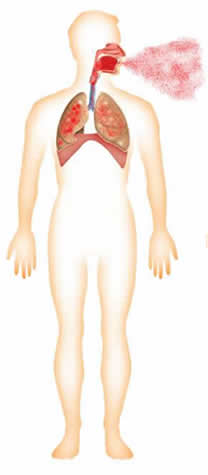
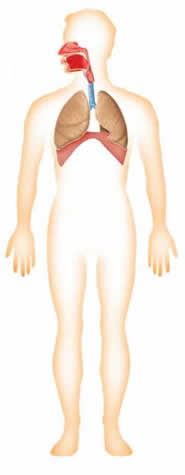 The
warders obey the orders, held unaware of the dangers in which
the prisoners are maintained. They are also victims of the criminal
deficiencies as regards health care, for example when prisoners
are maintained in prison with tuberculosis. The consequences are
terrible: 100 warders of Lantin prison reacted positively to the
test of tuberculosis in 2008. From 10 to 15 people can contract
the tuberculosis of one patient deprived of treatment for year.
Between 5 and 10% of these people develop the disease, with a
risk worsened for those whose immune system is weakened, for example
by disease, bad nutrition and drug-addiction, which are frequent
in the prisons. Tuberculosis is propagated like a cold and kills
nearly 2 million people each year, of which an average of 3 people
per day in Belgium. How many of them are prisoners?
The
warders obey the orders, held unaware of the dangers in which
the prisoners are maintained. They are also victims of the criminal
deficiencies as regards health care, for example when prisoners
are maintained in prison with tuberculosis. The consequences are
terrible: 100 warders of Lantin prison reacted positively to the
test of tuberculosis in 2008. From 10 to 15 people can contract
the tuberculosis of one patient deprived of treatment for year.
Between 5 and 10% of these people develop the disease, with a
risk worsened for those whose immune system is weakened, for example
by disease, bad nutrition and drug-addiction, which are frequent
in the prisons. Tuberculosis is propagated like a cold and kills
nearly 2 million people each year, of which an average of 3 people
per day in Belgium. How many of them are prisoners?
When a magistrate of the Antwerp Court of Appeal contracted tuberculosis, she was sent in quarantine and all the staff of the Court passed the test. The epidemics of tuberculosis in the prisons are intolerable, but when the warders protest, the press minimizes. In our days, tuberculosis is treated by 6 months antibiotics. The pulmonary form perforates the lung. Fine layers as hard as bone accumulate on the cured cavities, which as years passes by, obstruct the wounded lung, from where an end-of-life in serious respiratory sufferings. Shame on Belgium, to assure medical treatment to all its citizens, but not to its prisonners.
The prison of Turnhout is more human, according to Marcel and its doctor too, even if he has nothing to say: it is the minister who decides. That doctor had told him in September 2008 that he could live ten days, probably in the hope that he could leave this world in peace, falling asleep with the illusion of a possibility of gaining his last combat for the children. It is special, but it is charitable. Ten months later, many universities, foundations of scientific research, even the medical departments of an Arabic sheik, as well as ministries all around the world, religious congregations and insurance companies, observe the phenomenon of Marcel's survival, which has no scientific explanation.
The never-ending delaying tactics carry on. The King still has not signed the law although voted, which allows the Application of the Sentence Court to release a prisoner for medical reason, though we are crying for him to do so for ten months. The report of the social investigation to judge of the opportunity to let him go to his best friends in Brussels has "disappeared" and remains untraceable. Three weeks are necessary to do a medical report, leaving the All-Mighty in charge of Marcel's dialyses, heart electroshocks, and so forth. And when the curtain will fall, Marcel will be dead and the Minister will plead leniency for an administrative mistake.
About dehydratation
-
http://www.bloc.com/article/sante/regimes-et-nutrition/l-hydratation-essentielle-a-la-sante.html
-
www.nephrohus.org/s/spip.php?article54
-
http://www.nlm.nih.gov/medlineplus/ency/article/003281.htm
- http://www.medicalorama.com/html/sante_bebes/gastro-enterite


